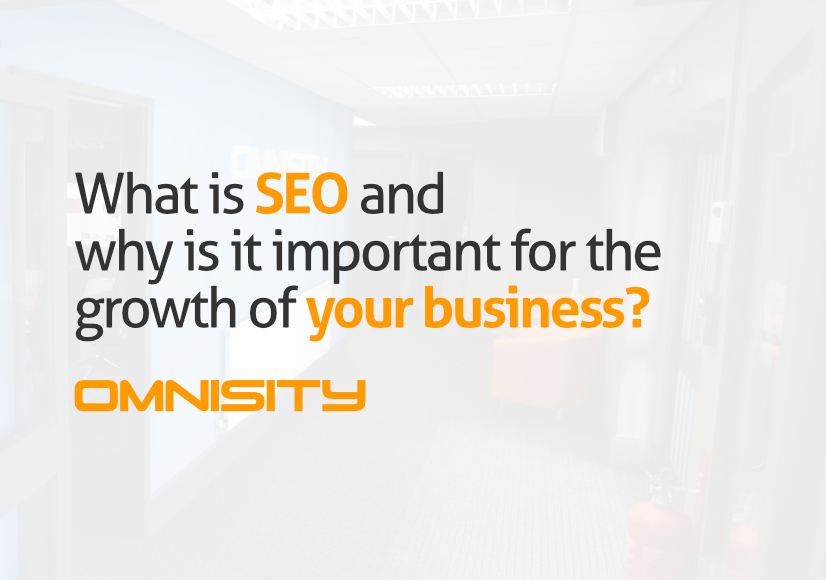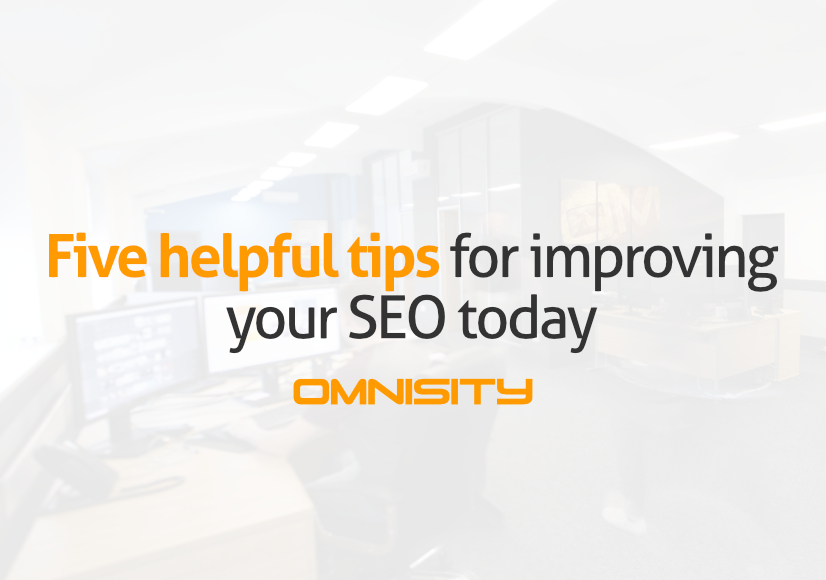The Difference Between SEO and PPC: Which is Better?
Both SEO and PPC have their strengths, but which is the right strategy for you will depend on your goals and aims.
SEO, or Search Engine Optimisation, is all about improving your website's visibility in organic search results. By optimising your website with keywords relevant to your industry and improving the quality of your content, you can attract more organic traffic and increase your chances of ranking higher on search engine pages.
On the other hand, PPC, or Pay-Per-Click advertising, allows you to bid for ad placement on search engines. With PPC, you pay each time someone clicks on your ad. It offers instant visibility at a cost.
With that in mind, let's dive in and explore these further to help decide which strategy suits your needs best.
Key Talking Points:
SEO involves optimising your website so that it better performs on Search Engines. As of January 2023, Google owns 84.69% of the market share, so most marketers focus their efforts on improving their visibility on Google; as that’s where their biggest audience is.
There are a variety of aspects to SEO, so let’s delve into the different ways you can optimise your website…
"SEO provides the opportunity to develop your website into an authoritative industry resource that offers value to both highly targeted prospects and existing customers."
- Rob Clarke, SEO Manager, Omnisity
On-Page vs Off-Page SEO
Here's a breakdown of the differences between on-page and off-page SEO:
- On-Page SEO: This focuses on optimising aspects of your website that are under your control. It includes elements like keyword research, meta tags, URL structure, content optimisation, and internal linking. By implementing these techniques, you can improve your website's relevance and user experience.
- Off-Page SEO: This refers to strategies and tactics that take place off your website, as a way to boost its search engine rankings. Common techniques include building high-quality backlinks from other websites, social media marketing, guest posting and online reputation management. Off-page SEO helps increase your website's authority and credibility in the eyes of search engines.
Both on-page and off-page SEO are essential for a well-rounded optimisation strategy. While on-page SEO lays the foundation for better visibility in search results, off-page SEO helps build your site's authority and drive more traffic to it. Together, they work hand-in-hand to improve your overall online presence and bring more organic traffic to your website.
Technical SEO
Optimising the technical aspects of your website is like laying a solid foundation for search engines to easily crawl, understand, and rank your site. By focusing on technical SEO, you can make your website faster, easier to navigate, and more search engine-friendly, which will improve its rankings in search engines. This could entail:
- Making tweaks to improve your website's speed, as a faster site leads to lower bounce rates (people who leave your site after viewing only one site).
- Using tools to identify and fix 404 error pages caused by dead links, which negatively impact search engine rankings.
- Implementing HTTPS with an SSL certificate to maximise your site's security and privacy, as Google ranks secure websites higher.
- Tweaking the content on your page so that it is better structured. This helps search engines understand your content better, which could lead to rich results in search engines (such as “featured snippets”).
- Using an XML sitemap to tell Search Engines which pages on your website exist and how to find them.
Local SEO
Local SEO allows you to appear in the map pack on Google Search Results, which is an opportunity for you to improve your business's visibility and attract more local customers.
Factors that could impact your local SEO include:
- Proximity: Local SEO takes into account the searcher's location, so it's useful to include location-specific keywords and create localised content that resonates with your target audience.
- Google My Business listing: Creating and optimising a Google My Business listing is crucial for local SEO. This allows you to provide accurate information about your business, such as contact details, opening hours, and customer reviews.
- Local citations and review signals: Building citations in online directories and acquiring positive customer reviews can significantly impact your local search rankings. Encourage satisfied customers to leave reviews on platforms like Google or Yelp.
By focusing on these aspects of local SEO, you can increase your chances of being found by potential customers in your area and drive more traffic to your business.
The Benefits of SEO
One of the key advantages of SEO is its ability to boost your website's visibility and attract a steady stream of organic traffic, leading to increased brand exposure and potential customer engagement.
Unlike PPC ads that require ongoing payments, SEO efforts can provide long-term benefits without additional costs. A high-quality piece of content could continue to rank on Google for months with minimal input or effort from you. By optimising your website's content and structure according to search engine algorithms, you have the opportunity to rank higher for relevant keywords and reach a wider audience.
Additionally, implementing effective SEO strategies improves user experience by making your site more user-friendly and accessible.
Overall, investing in SEO can lead to sustainable growth for your business by driving quality traffic and increasing conversions over time.
PPC, also known as pay-per-click advertising, is a highly effective digital marketing strategy that allows advertisers to display their website at the top of search engine results pages through paid ads, ensuring maximum visibility and potential for clicks. This is managed through platforms such as Google Ads and Microsoft Ads.
With PPC, you can have control over keyword research, bid setting, ad creation, and precise audience targeting. This means you can specifically target the people who are most likely to be interested in your products or services.
Unlike SEO, PPC offers quicker visibility and traffic to your website when compared with other tactics. It's an effective way to increase brand awareness and drive relevant traffic to your website.
"PPC can be very effective when you’re looking to capture audiences at the bottom of the sales funnel. With the correct set-up, you can catapult your marketing campaign with a substantial increase in traffic and qualified leads."
- Jordan Corns, PPC Manager, Omnisity
The Benefits of PPC
As your ads appear above organic search rankings from day one, you ensure immediate visibility of your brand. PPC allows you to tailor your marketing to specific audiences and track its performance, offering the following benefits:
- Quicker Results: PPC campaigns can generate results much quicker, driving traffic to your website.
- Targeted Advertising: Advertisers can reach their desired audience based on demographics, interests, and online behaviour.
- Cost Control: Advertisers have full control over their budget by setting a daily budget or controlling the amount they’re willing to bid for each click.
- Measurable ROI: PPC platforms provide detailed analytics to track campaign performance and measure growth, as well as return on investment.
However, it's important to note that while PPC offers instant visibility, it requires ongoing management and a financial commitment.
When considering the difference between SEO and PPC, there are a few key points to consider…
Cost Considerations
You can achieve a more sustainable and long-term impact with SEO as it can create lasting rankings that result in significant savings over time. While PPC campaigns can be expensive, their success depends on the competitiveness of a keyword (which impacts its price) and accurate targeting. With the right strategy, they can provide almost immediate results.
SEO, by comparison, does take longer to achieve results, but these results could last for a significant amount of time at no additional cost.
Ultimately, choosing between SEO and PPC should be based on your specific goals and budget constraints.
Timing and Speed
PPC campaigns offer could immediate results, as at the click of a button you can appear at the top of a search engine. SEO, by comparison, can take months or longer to start to show results.
Long vs Short-Term Results and Sustainability
Achieving sustainable and long-lasting visibility online is crucial for businesses. This is where the contrast between SEO efforts and PPC campaigns becomes apparent.
SEO focuses on building a strong foundation through optimised content, relevant keywords, and quality backlinks. This approach delivers long-term results, ensuring ongoing ranking benefits. On the other hand, PPC campaigns provide instant visibility but are limited by budget constraints. They only last as long as the client's funds allow.
Traffic Quality and Conversions
Given the potential risks and uncertainties, it's fascinating to explore how PPC and SEO specialists strive to attract the right audience and drive conversions on websites. Both specialists conduct careful keyword research to target the right people. However, PPC runs a higher risk as you pay per click, not per conversion.
This means that if you unintentionally target the wrong keyword, you may end up with low-quality traffic and fewer conversions at a high cost.
So, which method should you choose, SEO or PPC? When deciding between the two, it's important to consider your specific goals and circumstances.
If you have a limited budget but are willing to invest time and effort into optimising your website for search engines, then SEO might be the better option. It can help improve organic rankings and increase long-term visibility. On the other hand, if you need quick results and have a larger budget, PPC can provide immediate visibility through paid advertisements. It allows you to target specific keywords and demographics for better control over who sees your ads.
Ultimately, there is no one-size-fits-all answer. We suggest that you assess your marketing objectives and consult with us to optimise your results on search engines.
Want to make the most of these strategies? Contact us now for expert guidance on optimising your website for Search Engines.

